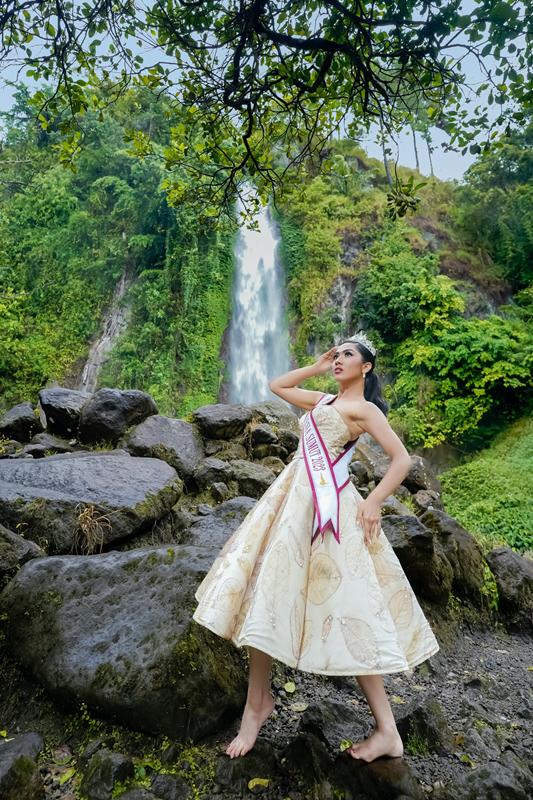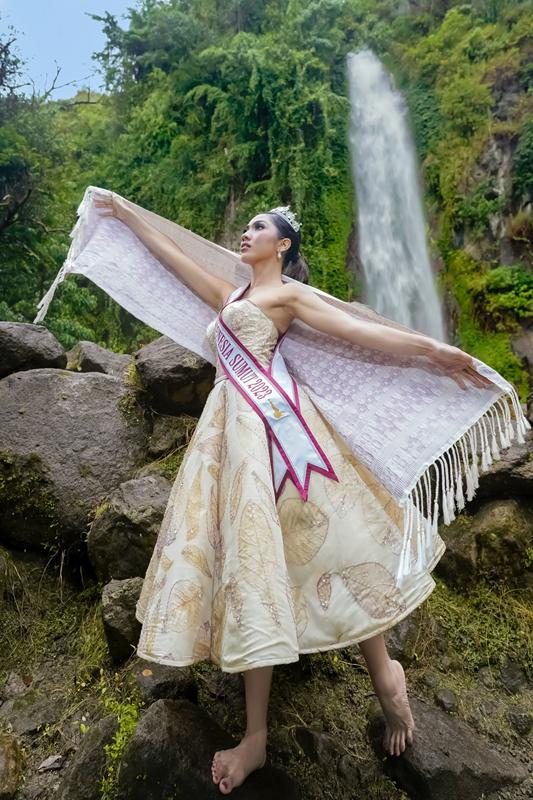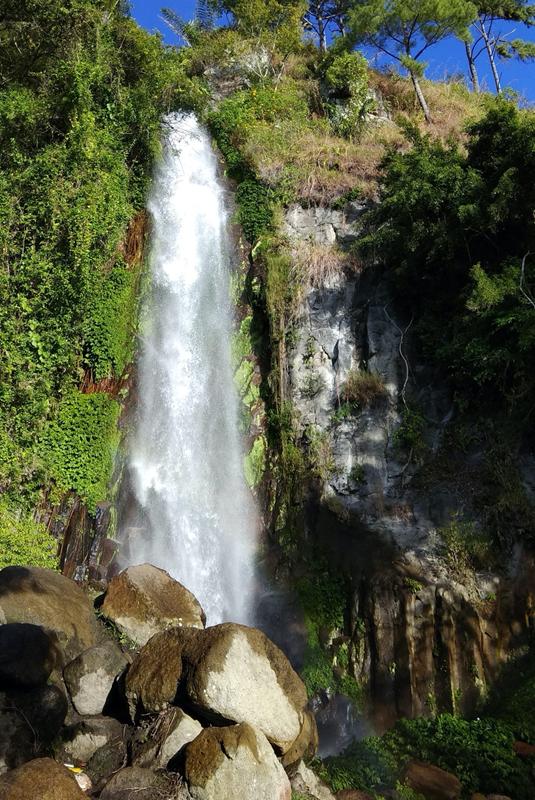Deep in the heart of Baktiraja, just past the rice fields and the sleepy roads of Humbang Hasundutan, a curtain of crystal-clear water falls from the cliffs—hidden, mystical, and beautifully untouched. This is Janji Waterfall, or Sampuran Janji as locals call it, one of North Sumatra’s most enchanting natural landmarks.
Not just a waterfall, but a place of vows, legends, and sacred silence—Janji Waterfall is wrapped in cultural meaning, natural charm, and a kind of magic that lingers in the mist.
📍 How To Get There
Janji Waterfall is located in Baktiraja District, on the southern fringe of Lake Toba. From the main town of Dolok Sanggul, it takes about 1.5 to 2 hours to reach the site. You’ll pass through scenic roads, valleys, and glimpses of Toba’s blue expanse until you arrive near the small village of Simamora. From there, a short hike through forest trails leads you to the falls.
The road infrastructure is modest, so it’s recommended to go with a local guide or someone familiar with the area—especially during the rainy season when the path can get slippery.
💧 What’s So Special About Janji Waterfall?
The name “Janji” means “promise” or “vow” in Bahasa Indonesia. According to Batak folklore, this was the sacred site where kings, warriors, or lovers made solemn vows—often binding, eternal, and sometimes tragic.
The waterfall itself is not massive in height (estimated around 15-20 meters), but what it lacks in size, it makes up for in serenity. The sound of falling water echoes across the forest, accompanied only by birdsong and the rustling of leaves. There are no vendors, no gates, and no cement structures—just you, nature, and the sound of a vow being whispered by the wind.
🛕 Cultural and Spiritual Significance
Janji Waterfall is more than a tourist spot—it’s considered sacred ground by the Batak community. It’s said that during ancient times, Batak kings (especially from the Sisingamangaraja line) would come to this place to pray, meditate, or make oaths before battle. Some versions of the legend even suggest that blood oaths were sealed here, symbolizing deep loyalty and ancestral connection.
The water is considered “air suci” (holy water) by many. Locals sometimes collect the water for ceremonial use, especially for traditional rituals involving healing or cleansing. You might still find small offerings near the rocks—flower petals, coins, or tied cloths left behind by pilgrims.
It’s a place where silence is not awkward—it’s expected.
🌿 What Can You Do Here?
Janji Waterfall is ideal for:
-
Reflection and quiet escape – No crowds, just forest sounds and mist on your skin.
-
Photography – Soft natural light, misty droplets, and lush green backdrops make this a dream spot for nature photography.
-
Cultural tours – Combine your visit with a stop at Istana Sisingamangaraja or Bakkara Valley, and you get a full historic and spiritual tour of the Batak heartland.
-
Spiritual wellness – Though not officially commercialized, the vibe here naturally leans toward mindfulness, meditation, or even traditional spiritual tourism.
🧘♂️ Pro tip: Early morning visits are best. The mist is thick, the forest is still cool, and you’ll likely have the entire site to yourself.
📉 Why Isn’t It More Popular?
The short answer? It’s still hidden.
Janji Waterfall doesn’t yet appear in big tourism maps or Lake Toba tour packages. There’s little signage, no ticketing system, and almost no digital footprint—except for a few YouTube vloggers and adventurous backpackers who stumbled upon it.
But that’s exactly why it’s a gem for the right kind of traveler—those who love raw beauty, seek authenticity, and crave stories that aren’t told through brochures.
There is a huge potential for soft eco-tourism here. With the right touch—like preserving the sacred narrative, involving the local community, and avoiding overdevelopment—Janji Waterfall could become a must-visit for culture-conscious tourists.
🔥 Final Thoughts: A Place That Holds Promises
There’s something powerful about a place named after a vow. Janji Waterfall isn’t loud or grandiose—it’s humble, spiritual, and deeply rooted in Batak heritage. It reminds you that not all wonders need neon signs or five-star resorts. Some just need to be found, felt, and respected.
So if you’re ever in the Baktiraja area and want to experience more than just landscapes—if you want to hear the echo of ancient promises in a forest sanctuary—then make the journey to Janji Waterfall. Who knows? You might end up making a vow of your own there.
 |
 |
 |
